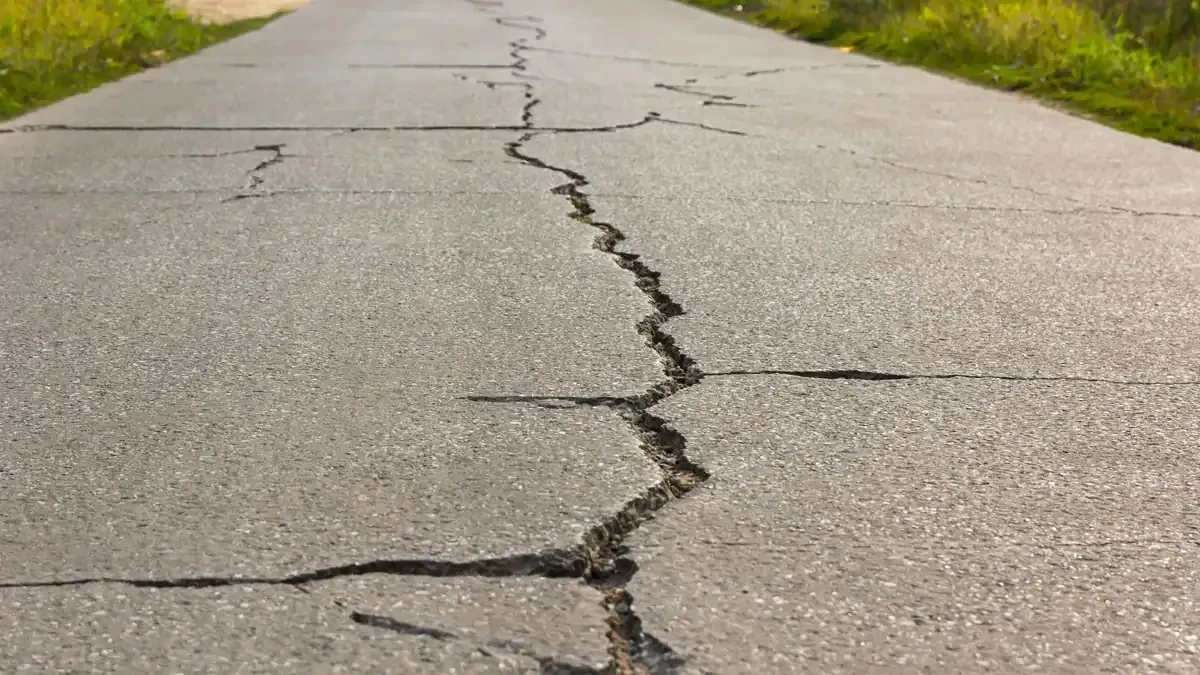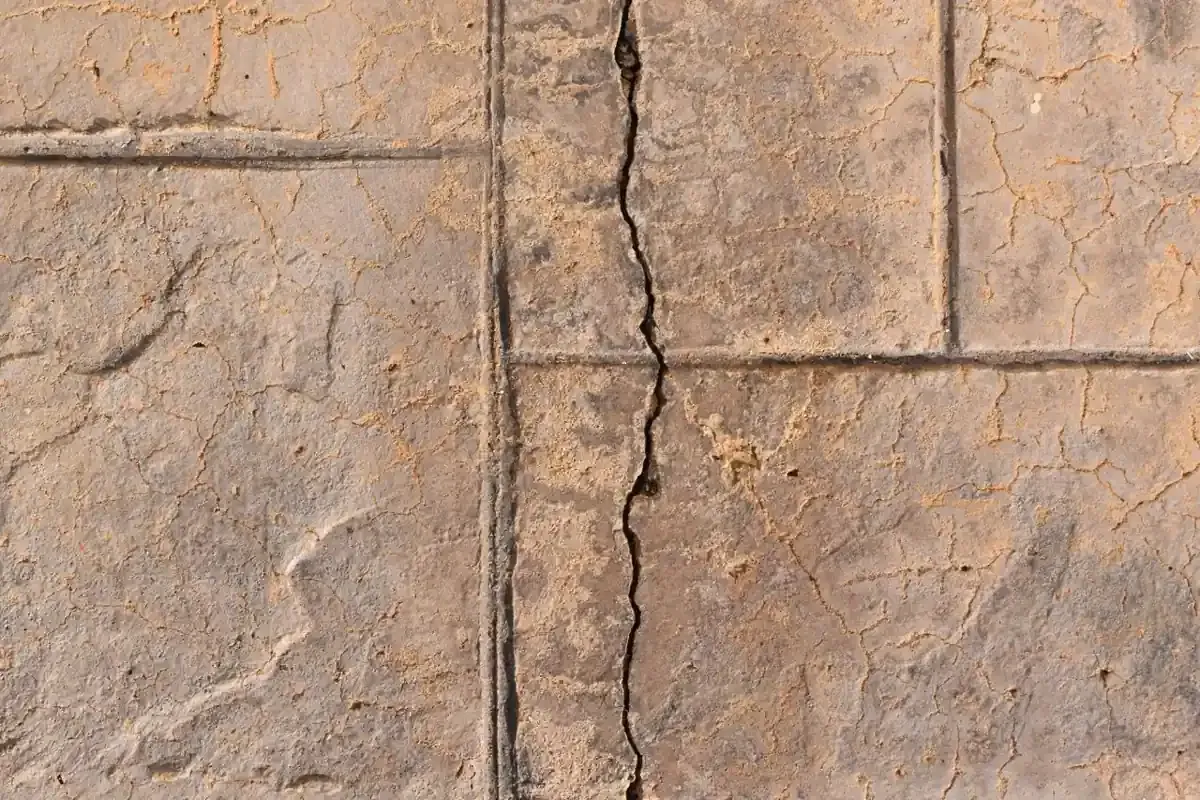Should You Repair or Replace Your Cracked Concrete Driveway?
Staring at cracks in your driveway can be frustrating. Should you patch them up or tear everything out and start fresh? This question bothers many homeowners, and the answer isn't always simple. The good news is that you can make the right choice by understanding a few important factors. Let's walk through everything you need to know to decide what's best for your driveway.
Understanding Your Driveway's Condition

Before making any decisions, you need to really understand what's happening with your driveway. Not all cracks are created equal, and the size and type of damage matters a lot. Take a close look at your entire driveway. Walk every inch of it. Get down and examine the cracks up close. Take pictures so you can track changes over time.
Ask yourself these questions. How many cracks do you see? Are they hairline thin or wide enough to stick your fingers in? Do sections of concrete sit at different heights? Can you see the stones inside the concrete? Does water pool anywhere instead of draining away? The answers to these questions paint a picture of your driveway's health. This information becomes super important when deciding between repair and replacement.
When Repair Makes Perfect Sense
Some driveway problems are perfect candidates for repair. Fixing them costs less money and takes less time than full replacement. Here's when repair is your best bet.
Minor Surface Cracks
Thin cracks smaller than a quarter inch wide usually need simple repairs. These cracks happen naturally as concrete ages. They don't mean your whole driveway is failing. Professional repair involves cleaning out the cracks and filling them with special sealant. This stops water from getting inside and making the cracks worse. The repair is quick, affordable, and can last for years.
Isolated Problem Areas
Maybe most of your driveway looks great, but one section has issues. Perhaps a tree root pushed up one corner. Or maybe one slab settled lower than the others. For isolated problems, you can often repair just that section. Professionals can lift sunken slabs, remove and replace single damaged sections, or grind down uneven spots. No need to redo the whole driveway when only part of it has problems.
Young Concrete
If your driveway is less than 10 years old and showing minor issues, repair almost always makes sense. The concrete still has plenty of life left. Fixing small problems now prevents bigger ones later and gives you many more years of use.
Budget Constraints
Sometimes your budget makes the decision for you. If replacement isn't financially possible right now, proper repairs can buy you several more years. This gives you time to save money for eventual replacement while keeping your driveway safe and functional.
When Replacement Is the Better Choice
Other situations call for complete driveway replacement. Yes, it costs more upfront. But sometimes spending more now actually saves you money in the long run.
Extensive Cracking Throughout
When cracks cover more than half your driveway, repair becomes a band-aid solution. You'd spend a lot fixing individual cracks, but more would appear soon. The concrete itself is failing. At this point, replacement gives you better value. You get a brand new driveway that will last 20-30 years instead of pouring money into repairs that only last a few years.
Severe Settling or Heaving
If large sections of your driveway have sunk or risen significantly, the problem goes deeper than the concrete surface. The base underneath has failed. The ground has shifted or eroded away. While you can sometimes lift settled sections, severe settling often returns because the base is compromised. Replacement lets you fix the base properly and install new concrete on a solid foundation.
Old Age
Concrete driveways typically last 20 to 30 years. If yours is approaching or past this age, replacement makes more sense than repair. Old concrete has been through decades of weather, vehicles, and stress. Even if you repair current problems, new ones will keep appearing. Starting fresh with modern materials and proper installation gives you decades of worry-free use. Think of it as an investment in your home's future.
Crumbling and Deteriorating Surface
When your driveway's surface is flaking apart, when you can easily scrape pieces off, when the stones inside are showing through - the concrete has deteriorated beyond simple repair. This level of damage means the concrete mix was poor quality, wasn't installed correctly, or has simply reached the end of its life. Patching deteriorated concrete doesn't work because the surrounding areas continue breaking down.
Poor Drainage Design
If your driveway was never built with proper slope and drainage, water constantly pools and causes ongoing damage. You could repair cracks all day long, but they'll keep coming back because water keeps attacking the concrete. Replacement lets you redesign the driveway with correct slope and drainage. This solves the root cause instead of just treating symptoms.
Calculating the Cost Factor
Money matters when making this decision. Let's break down the financial side clearly. Minor repairs might cost a few hundred dollars. Extensive repairs can run into thousands. Full replacement typically costs several thousand dollars depending on your driveway's size. Here's the key question: If repairs cost 50% or more of replacement cost, replacement usually makes more financial sense. You're spending half the money for a temporary fix instead of a permanent solution. Also consider how long each option lasts. Repairs on failing concrete might last 2-5 years before you need more work. A new driveway lasts 20-30 years. Calculate the cost per year of use to see which option provides better value. Don't forget about your home's value either. A new, attractive driveway increases curb appeal and property value. Heavily patched, clearly repaired driveways can actually hurt your home's appearance and value.
Getting Professional Assessment
Making this decision alone can feel overwhelming. That's why professional assessment is so valuable. Experienced concrete contractors like Steadfast Concrete Frisco have seen thousands of driveways. They can quickly evaluate your situation and give honest recommendations. They know when repairs will work well and when they're just wasting your money. A good contractor explains their reasoning. They show you exactly why they recommend repair or replacement. They might point out problems you hadn't noticed or explain why certain cracks aren't as bad as they look.
Get estimates from multiple contractors. Compare not just prices but also their explanations and recommendations. If three contractors all say replacement is needed, that's a strong signal to listen. Be wary of contractors who always recommend the most expensive option or who pressure you to decide immediately. Quality professionals give you information and let you make informed decisions.
Making Your Decision
Consider all the factors together. Look at the extent of damage, your driveway's age, your budget, and how long you plan to stay in your home. If you're planning to sell soon, a new driveway might be worth the investment for increased home value and curb appeal. If you're staying long-term, both repair and replacement can make sense depending on the driveway's condition. For residents in Frisco, TX, weather patterns matter too. Our hot summers and occasional freezing winters stress concrete. Factor in these local conditions when thinking about how long repairs might last.
Taking the Next Step
Now you have a framework for making this decision. You understand when repair works best and when replacement is the smarter choice. Start by getting that professional assessment. Contact companies like Steadfast Concrete Frisco to evaluate your driveway. Ask questions. Get detailed explanations. Request written estimates. Don't rush the decision, but don't ignore the problem either. Concrete damage gets worse over time. Small problems become big ones. Inexpensive repairs turn into costly replacements.
Whatever you decide, taking action now protects your investment and keeps your driveway safe and functional. Your home deserves a driveway that looks good, works well, and lasts for years to come. The right choice depends on your specific situation. With the information in this guide and help from professionals, you'll make the decision that's perfect for your needs and budget.



